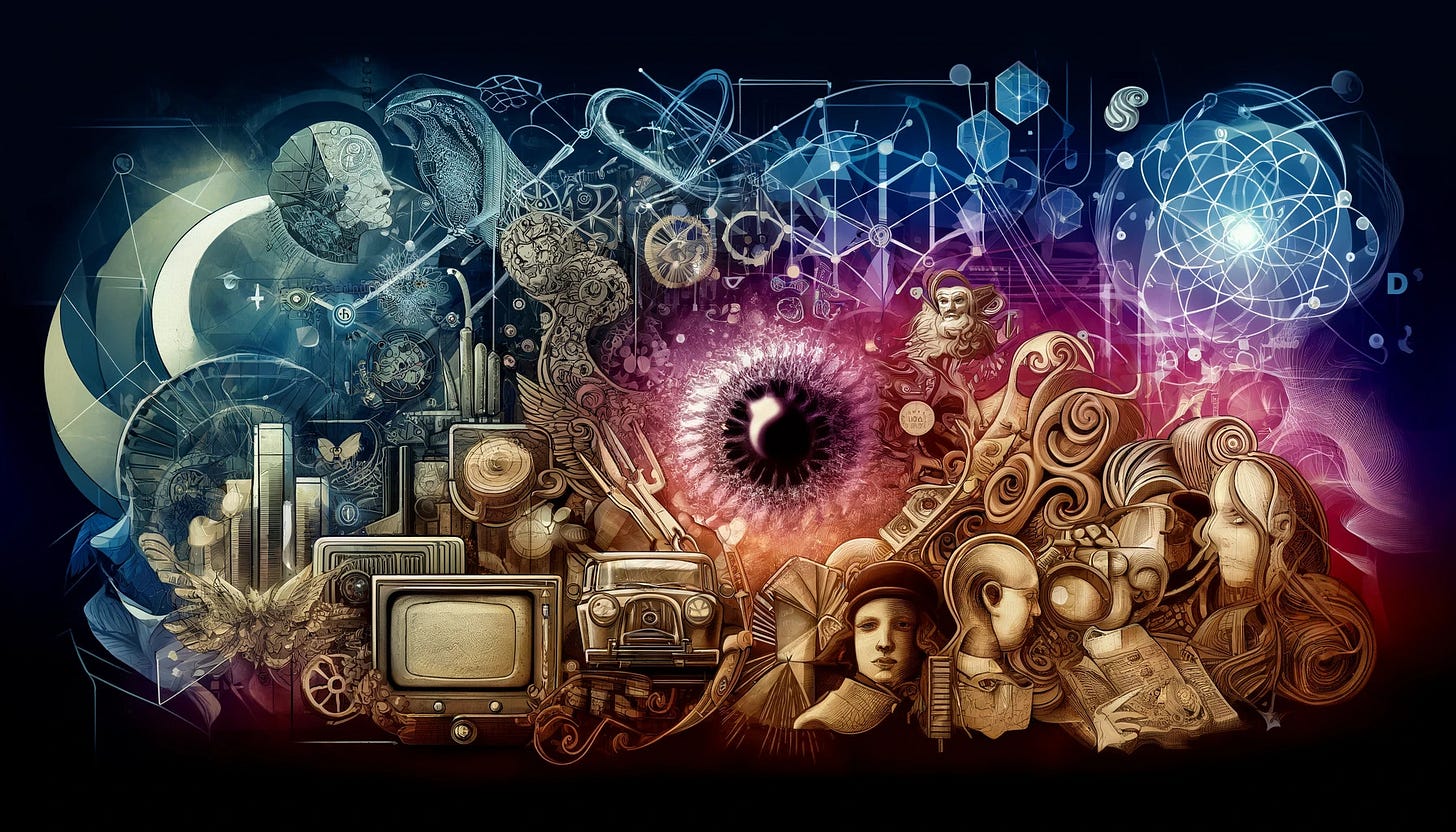Hyperstitious Linguistic Programming
I Want To Believe
Hyperstitious Linguistic Programming (HLP) is a complex and multifaceted science, art and magickal practice that explores the profound creative capacities of language, media, and cultural beliefs on shaping reality. At its core, HLP posits that certain ideas, narratives, and linguistic constructs can become self-fulfilling prophecies, ultimately manifesting themselves as/in the physical world.
HLP encompasses a wide range of linguistic and symbolic systems, including natural languages, computer languages, mathematics, and various forms of media such as movies, radio, television shows, and documentaries. These diverse forms of communication and expression are viewed as powerful psychetechnologies for programming reality, influencing perceptions, and shaping the collective reality eXperience.
The concept of hyperstition lies at the heart of HLP, referring to cultural beliefs or works of fiction that possess the uncanny ability to bring about their own realization. These hyperstitions can originate from various sources, such as urban legends, conspiracy theories, science fiction narratives, or even seemingly innocuous memes. Once they gain sufficient traction and belief within a cultural context, they begin to exert a tangible influence on the world, blurring the line between fiction and reality.
See Qbism, Conscious Realism, Analytical Idealism, Quantum Social Science…
HLP understands the fundamentally Universe-defining potential of language and media in molding societal norms, values, and behaviors. It suggests that the stories we tell, the ideas we propagate, and the language we use have the power to create self-reinforcing feedback loops, ultimately leading to the manifestation of the very phenomena they describe. This process can be observed in various domains, from the rise of subcultures and political movements to the emergence of new technologies and scientific paradigms.
The implications of HLP are so far-reaching and profound that words fail to ultimately communicate what is being described here. This article is akin to releasing the answer to “What is the meaning of life,” or “Is there a God.”
HLP challenges traditional notions of causality, suggesting that the relationship between language, belief, and reality is more fluid and reciprocal than previously assumed. It highlights the importance of critical media literacy and the need to be mindful of the narratives we consume and perpetuate, as they shape (often inadvertently) our collective future.
Moreover, HLP raises important ethical questions about the responsibility and power dynamics involved in linguistic and media programming. It calls for a heightened awareness of the consequences of our communicative acts and the need for conscious and intentional use of language and media to create positive sum narratives which effectively means the world we live in and experience.
If you would like to sign up for more info on HLP and future courses and training of all kinds (including Hyperstitiousness and how to bend reality to your true will) please sign up.



